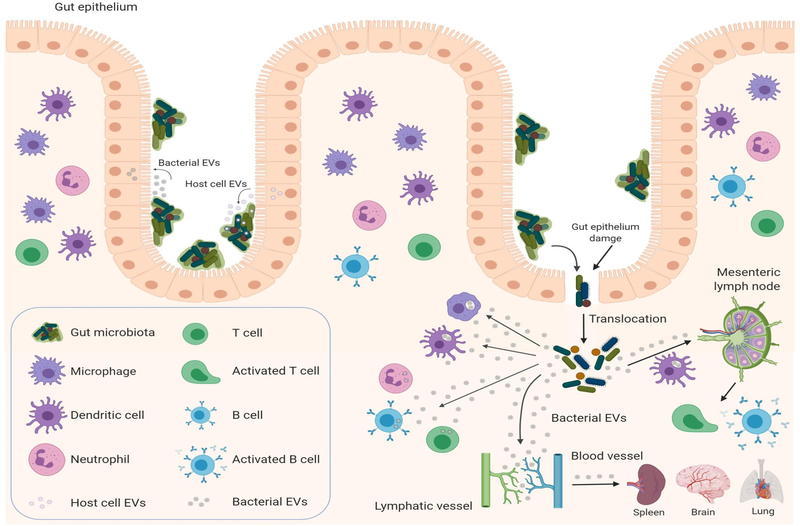Figure 1.
Gut microbiota and host cells: EV-mediated crosstalk. Bacterial EVs can deliver functional and active RNA molecules to host cells, such as gut epithelial cells, immune cells, and potentially cancer cells, and regulate their biological functions by affecting gene expression in recipient cells. Microbe-associated molecular patterns carried by bacterial EVs can activate the immune system locally (mesenteric lymph nodes) or systemically by reaching the circulatory system (spleen, peripheral lymph nodes) to modulate cancer immune responses. Host cells, such as intestinal epithelial cell can affect the gut microbiota by secreting EV-encapsulated miRNAs, which can regulate intestinal bacterial functions and composition by targeting microbial gene expression and potentially modulate the responses to cancer treatment. (Figure is created with BioRender.com). EVs: extracellular vesicles

